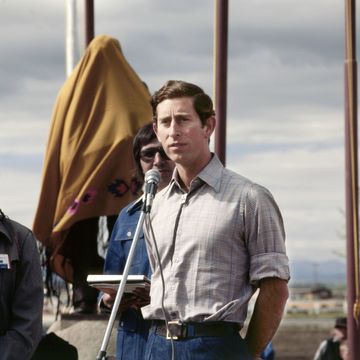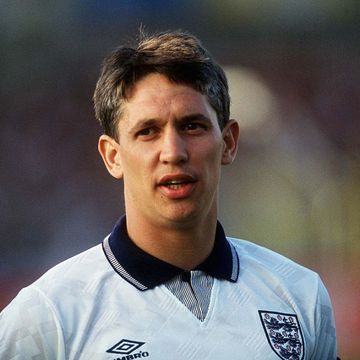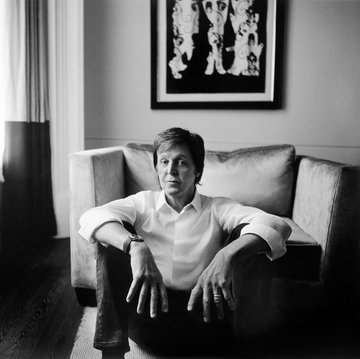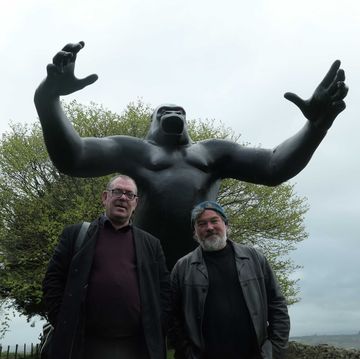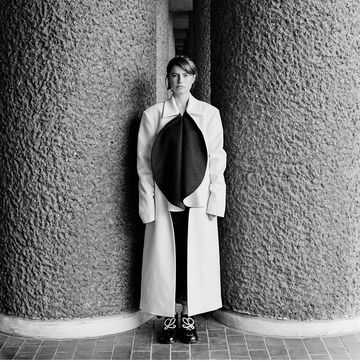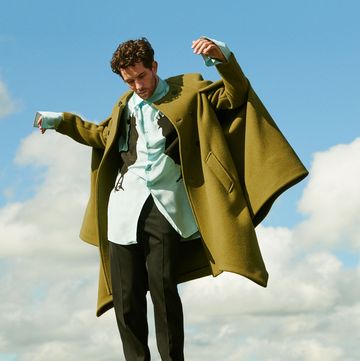Can the actor famous as Sid Vicious, Joe Orton and Dracula really play our majestic Churchill? Remember the history — perhaps our sense of the great leader has been misled. When the 65-year-old Winston became prime minister in May 1940, a place in legend seemed less likely than a poisoned chalice. Leading figures in the Conservative Party believed that Churchill succeeding the discredited Neville Chamberlain was proof of desperation and imminent defeat. Some of those power-brokers hated Winston and were plotting against him. Power in that gloomy moment might be a preamble to epitaph.
Gary Oldman could not claim Churchillian wilderness as he came to play the great leader in the film Darkest Hour. But he has not been an insider or an establishment favourite. He does not attempt the suave ease of George Clooney or the polished manners of Benedict Cumberbatch. Oldman has never sought to seem upper class or debonair, or even “English”; he lives much of the time in Los Angeles and is comfortable playing Americans, especially if they’re as unknowable or unreliable as Lee Harvey Oswald in JFK (1991). Eddie Redmayne has won an Oscar already as a wide-eyed, adorable genius, but the closest Oldman came to that prized status before his George Smiley was as Sid Vicious. And Sid was passed over by horrified Academy members who wanted acting to be tasteful.
Oldman has been regarded as a spectacular player for decades, but he follows his own turbulent and private inspiration. His work has varied wildly, so he has seldom been a star who can generate or dominate projects. He is not an easy sell, or an ingratiating personality. I don’t think he sells tickets any more than he charms his way through talk shows. No casting agent would ever say, “Get me someone like Gary Oldman,” for that type doesn’t exist. He is lost in the jungle of his many contrary roles. He does not let us grasp him, or place him. By being a character actor, his own self stays elusive.
He has never taken one step to be loved or needed by the public (or the business). It is as if admiration makes him anxious, and even at this high point in his career he prefers to do little in the way of interviews or promotion. Take me as I am, he seems to say — but then join him in puzzling over who that troubled person is. He may get his Oscar at last as Churchill and that would be only his second nomination. But this is a maverick who has often trashed the Golden Globes for handing out stupid awards that lack class or significance. There are times when this Oldman seems to have cornered the market as his own worst enemy, or being reckless about reputation. Equally, it’s part of the wonder in his Churchill that he refuses to let the man be simply a bulldog, a hero or the worshipped institution. Oldman’s Churchill is a wreck, asked to save the nation, but needing to save himself, too.
Who is Gary Oldman? Well, it’s worth stressing that he was born on 21 March 1958, only three years after a befuddled and ailing Winston Churchill stepped down as prime minister (because he was by then unable to do the job mentally or physically). In 1958, Oldman’s London was only just emerging from the shadow of WWII and the strange curse of victory: it had lasting bomb sites, food rationing, and men’s clothes that went from drab to grey. Moreover, Oldman was the son of a seaman who became a welder and then left the family. Dad was an alcoholic and a missing person. Gary Oldman was working class, from New Cross, before south-east London dreamed of being fashionable. This was in an age when Dirk Bogarde, Jack Hawkins, Donald Sinden and Richard Todd were shining and well-spoken models in the sheltered realm of British film. It was an era when impolite realism was not yet common, even if it saw the dawn of angry young men, kitchen sink theatre, a time of John Osborne, Harold Pinter and Tom Stoppard in which Britain was about to have a generation of working-class actors that included Albert Finney, Tom Courtenay, Robert Shaw, Peter O’Toole and Michael Caine. Gary was five when The Beatles hit — a perfect age for going wild.
When Oldman was in his teens, his Lewisham Deptford was a safe Labour seat (John Silkin was its MP for years), but National Front precursors managed to get close to 2,000 votes in elections there in 1966. There were fascist demonstrations in the Seventies, and then a serious fire in 1981 (with 13 deaths) that may have been set by racist extremists. Britain by then was a more prosperous country and in the Sixties, London and the prospects for youth culture had been transformed. Gary Oldman’s world was changing in ways parents could hardly comprehend. But he was a New Cross lad who watched Millwall play football.
He thought he wanted to act but Rada turned him down and told him he had no future. Instead, he went to the Rose Bruford College in Sidcup. And he was on his way, as an outsider, doing any old job to survive. He played Hamlet once as a kid, but his natural habit was to sound rough and to hunt for new, dangerous material. In his twenties, Oldman worked on the edges of British theatre, often at the Royal Court in its anti-genteel heyday. He did several plays by Edward Bond that explored outrage and indecency, and he made his movie debut as a skinhead in Mike Leigh’s Meantime (1984), a picture that starred his friend (and occasional rival), Tim Roth. Together they would do the film of Rosencrantz & Guildenstern are Dead in 1990, directed by its author, Tom Stoppard. Other actors in this group included Alfred Molina, Phil Daniels, Ray Winstone and Lesley Manville. Oldman and Manville were together on stage in Caryl Churchill’s Serious Money (1987). They married in a rush, they had a son, Alfie, and then after a few months they broke up.
By the time he was 30, Oldman had the reputation as the most unrestrained young actor in Britain, a desperado figure, inventive to the point of self-destruction, unpredictable and fearless. He was a year younger than Daniel Day-Lewis but he was ahead of that more upper-class actor. In just a few years, Oldman delivered three astonishing and alarming performances, as funny as they were scary: as Sid Vicious in Alex Cox’s Sid and Nancy (1986), playing with Chloe Webb, exulting in outrage; as playwright Joe Orton, insolently queer, in Prick Up Your Ears (1987), written by Alan Bennett and directed by Stephen Frears; and as Clive “Bex” Bissell, an East London real estate agent and leader of a gang of football hooligans in Alan Clarke’s TV film The Firm (1989). You could not behold Oldman in those years without being struck by his lack of inhibition or caution. There was an exuberant nihilism in him and a total lack of that professional need to be liked that can overtake (and tame) so many actors. Was he going to hell?
At the time immediately post-Sid and Nancy, the Best Actor Oscars went to Paul Newman in The Color of Money (1987) and Michael Douglas in Wall Street (1988), urbane and essentially inoffensive performances as attractive rogue figures. Whereas, Oldman’s Sid was an authentic beast, unnoticed by the Academy, and disparaged by Oldman himself. He had to be coaxed into the role; he disdained the punk ethos and he often worried he was unconvincing or half-hearted in the part. But he lost so much weight getting close to the drug-ravaged Sid that he had to be hospitalised. He seemed as much in danger as Vicious himself, born John Simon Ritchie in Oldman’s own Lewisham in 1957 and dead at the age of 21 from a heroin overdose. It didn’t seem likely then that Oldman had any intention of lasting much longer.
He settled that dilemma by going to America. His very local voice and talent shifted from New Cross to New York and Los Angeles. He was candid about getting into the sort of money that might be available there for a flamboyant actor. He was also devoted to those schemes of pretending like changing his voice and his look. Almost inadvertently, his skill as a mimic and his eagerness to appear different every time meant that there was less public certainty on how the real Gary Oldman looked or sounded. Evasion and disguises went hand-in-hand with audacious exploration.
In State of Grace (1990), he matched up with Sean Penn and Ed Harris as Irish criminals in New York; in Oliver Stone’s JFK, he took pleasure in being slippery as Lee Harvey Oswald — as if embracing all the different Oswalds conspiracy theories had detected. Then, in 1992, for Francis Ford Coppola, he entered into a tour de force of disguise in Bram Stoker’s Dracula. Oldman spent hours over costume, makeup and hair styling. He was fearsome (or loathsome), yet seductive, too — what else is that fatal kisser role? The film won Oscars for makeup and costume, but not even a nomination for Oldman. He was spectacular, to be sure, but the film seemed too studied or over-decorated, and Oldman’s virtuoso performance was undermined by the simplicity of fellow-actors Keanu Reeves and Winona Ryder.
Oldman played a pimp, a white man who thinks he’s black, in Tony Scott’s True Romance (1993) with a script by Quentin Tarantino. It was a small part, but Oldman took great pains over dreadlocks, bad teeth and facial scars, to say nothing of his voice. For Luc Besson, he was a drug-addict lawman chasing Jean Reno in Léon: The Professional (1994). Then, as a deliberate change of pace, he was no less than Ludwig van Beethoven in Immortal Beloved (1994), deaf but intense: he received awed notices, yet the film didn’t quite work and there was some feeling that Oldman was showing off too much. By contrast, his Sid Vicious had actually seemed more in need of music. In Roland Joffé’s The Scarlet Letter (1995), playing opposite Demi Moore, he was lost in a period film that lacked historical or emotional reality. Not for the first time, Oldman failed to generate much chemistry with an actress on screen.
That does not fit the real man, who has fallen for many women in life — or caught their fall. Close to 60, he has been married five times. In order, after Lesley Manville, his wives are the actress Uma Thurman (1990–’92) — they were in Henry & June (1990) together; Donya Fiorentino (1997–2001); the singer Alexandra Edenborough (2008–’15); and writer and art curator Gisele Schmidt (they married in 2017). He has two sons by Fiorentino and won custody of them after a bitter dispute. There were other relationships, too, notably with Isabella Rossellini, who acted with him in Immortal Beloved. Along this way, Oldman was getting into a tougher financial situation and he became involved in a few drunk driving incidents that led to alcohol rehab.
Had America fulfilled Oldman? He was a name actor, but increasingly hard to cast, or even identify. It was striking how, in 1997, he took some of his money back to Britain and wrote and directed a film of his own, Nil by Mouth, an uncompromising, foul-mouthed portrait of domestic violence set against his south-east London background. The film starred Ray Winstone and Kathy Burke, who won the acting prize at the Cannes Film Festival. Oldman did not act in the film himself but he directed it very well and he seemed replenished by contact with London. Nil by Mouth had better reviews than it ever did business but the lesson of the film seemed clear: he might be more himself in an English setting.
He did rally as the cruel Kazakh hijacker battling President Harrison Ford for control of Air Force One (1997), a satisfying, old-fashioned adventure film, with a flamboyant accent and lip-smacking hostility. But this was the kind of performance Oldman could have done without too much preparation. A couple of years later, with strenuous makeup assistance, he was his most odious villain, crippled, warped and sheer evil, as Mason Verger in Hannibal (2001), the curious sequel to 1991’s The Silence of the Lambs. The public loathed Verger, to be sure, but it felt possible that some of that attitude extended to the actor. He had worked hard, opposite Jeff Bridges and Joan Allen, in the 2000 political film The Contender, playing a nasty congressman, but again the movie was a throwback. Oldman felt aggrieved because he believed director Rod Lurie recut the picture under pressure from Steven Spielberg and DreamWorks.
By this stage, Oldman was making too many poor films and holding onto a career with a few staple roles: as Sirius Black in four Harry Potter films, and as Commissioner Gordon in The Dark Knight trilogy. These jobs were modest meal tickets and Oldman did decent work in them, but no one could see him as a movie star any longer. Plus, he was past 50 with a look the public didn’t know or like.
But sometimes an actor is rescued. Over 30 years earlier, Alec Guinness had had one of his great triumphs playing the sad master spy George Smiley in the TV dramatisation of John Le Carre’s Tinker Tailor Soldier Spy. In 2011, there were thoughts of remaking it as a theatrical movie, though some warned against challenging the memory of Guinness. The writer Peter Morgan started the sequel and then Tomas Alfredson came on board to direct. He chose the middle-aged Oldman, without makeup adornments, to be Smiley in a cast that included Mark Strong, John Hurt, Toby Jones, Tom Hardy, Colin Firth, Benedict Cumberbatch and Simon McBurney. Oldman understood the situation thoroughly. There was not a trace of show-off now, just the dry, wounded authority of Smiley the veteran, expert but melancholy. This was in keeping with Guinness’s performance, but it felt fresh and personal, and it was a relief to see the actor looking like himself. Every admirer of Gary Oldman was encouraged. Alfredson delivered an effective thriller, and the film was a hit that drew attention to Oldman’s subtlety.
He earned his first nomination for an Oscar, and though he lost to Jean Dujardin in The Artist, there was widespread feeling that Oldman had been deserving, and might be properly recovered in his career. Better yet was to come.
On the face of it, Winston Churchill is not a neglected character. All too many actors have had their shot at the role, some as good and touching as John Lithgow in The Crown, and others less necessary. But writer Anthony McCarten and director Joe Wright had a novel plan in mind. They would concentrate on the first month of Churchill’s premiership, in the crisis of Dunkirk, when politicians like Viscount Halifax (the excellent Stephen Dillane) were plotting a secret peace deal with Hitler. Oldman might not have seemed obvious casting. He had never been comfortable doing upper class parts; his Smiley had not seemed public school or Oxbridge. But the vision in Darkest Hour was braver still for it opened up truths that have been neglected by decades of official British hero worship. We had forgotten how unstable Churchill was: a manic depressive, a raging alcoholic and subject to impetuous and disastrous decisions. He turned out to be a great war leader but the Halifaxes of the time had good reason to be worried.
Writing in October 2017, with Darkest Hour set to open in January, my only prediction is that it will be a popular success: it seems to me more compelling as a narrative and more historically revealing than Christopher Nolan’s Dunkirk. I suspect Oldman will get his second Oscar nomination. He may go on to win, even though it’s not clear at the moment what his opposition will be. I say this because I think it’s the best thing he has ever done and because the community of actors and other film-makers recognises that, whatever his waywardness over the years, he is an exceptional talent. He wears a lot of makeup as Winnie, and he has fun with the orator’s plummy voice — a cultural cliché in Britain by now. Still, this is the kind of role and performance the Academy respects.
What would that mean for his career? Will Gary Oldman emerge as a master? Does he risk a knighthood? I’m not sure. He is not likely to become a mainstream favourite. When he does interviews, he can seem furtive or sly, mischievous but unsettled. Perhaps he is more at ease pretending than being close to himself. He will not suddenly become obvious casting; he cannot get younger or turn himself into a romantic figure. I suspect he still nurses a tendency to make misguided choices (so like the real Churchill), and I can imagine a few overblown mistakes still to come.
One lesson is clear: Gary Oldman’s creative soul is still English. His homeland has changed so much since 1958, but in George Smiley he placed himself as a recognisable functionary, skilled at his intricate, betraying job but someone who has lost hope in the process. And now his Churchill is an outcast who becomes central. Does that indicate a way for Oldman to move on? He might even return to the live stage. It’s not hard to see him in Chekhov or Pinter. You can imagine him as Lear or Prospero. With a ton of makeup he might be Falstaff.
He has said he wants to act in and direct a picture about the 19th-century still photographer Eadweard Muybridge who helped create movies. Muybridge was born in England, but then he went to America, and killed a man for having an affair with his wife. You want to see that.
Darkest Hour is in cinemas on 12 January.



